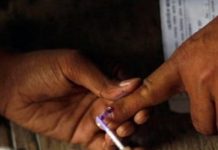Finally, India has received for the first time the first tranche of Swiss bank account details and it’s touted as major success of the Modi Government’s fight against black money. However, with the data still remaining shrouded by the confidentiality clause, is the information worth the effort?
The information from Swiss authorities has under the AEOI framework, which provides for exchange of information on financial accounts, currently active as well as those accounts that have been closed since 2018, the year in which the framework agreement became effective. So far so good, but the information the exchange was governed by strict confidentiality clauses.
Taking recourse to the confidentiality clause, the FTA officials refused to part with specific details on the number of accounts or about the quantum of financial transactions belonging to Indians with the Swiss banks. Little doubt the effort was not worth waiting for!
The full names that figure prominently in the Swiss government federal gazette include Krishna Bhagwan Ramchand, Potluri Rajamohan Rao, Kalpesh Harshad Kinariwala, Kuldip Singh Dhingra, Bhaskaran Nalini, Lalitaben Chimanbhai Patel, Sanjay Dalmia, Pankaj Kumar Saraogi, Anil Bhardwaj, Tharani Renu Tikamdas, Mahesh Tikamdas Tharani, Savani Vijay Kanaiyalal, Bhaskaran Tharur, KalpeshbhaiPatel Mahendrabhai, Ajoy Kumar and Dinesh Kumar Himatsingka, Ratan Singh Chowdhury and Kathotia Rakesh Kumar.
Of course, there are some names mentioned in the Swiss Government federal gazette, but still, there are many more cases where only initials have been disclosed for Indian nationals and these include only abbreviations or initials such as NMA, MMA, PAS, RAS, ABKI, APS, ASBK, MLA, ADS, RPN, MCS, JNV, JD, AD, UG, YA, DM,SLS, UL, SS, RN, VL, UL, OPL, PM, PKK, BLS, SKN and JKJ. Interestingly, several of these persons and their companies are said to be based in Kolkata, Gujarat, Bengaluru, Delhi, and Mumbai.
Large numbers of Indians who have been issued notices recently include people whose names figured in the HSBC and Panama lists, as also those being probed by the Income Tax Department and the Enforcement Directorate among other agencies.
Ironically, the money parked by Indians in Swiss banks has been rising and it rose by over 50% in 2017. Interestingly, while the money stashed by Indians in Swiss banks rose manifold, neighbouring Pakistan’s funds held by its people were down by over 21 per cent during this period. The data shows that funds held directly by Indians in 2017 rose to 6,891 crore. This included 3200 crore was in the form of customer deposits, 1050 crore through other banks and 2640 crore.
The Income Tax department said in a tweet “India will receive information of the calendar year 2018 in respect of all financial accounts held by Indian residents in Switzerland. This will be a significant step in the government’s fight against black money as the era of Swiss bank secrecy will finally be over”.
The tweet followed a meeting of the Swiss delegation led by Nicolas Mario Luscher, Deputy Head of Tax Division, State Sectt for International Finance, with revenue Secretary Ajay Bhushan Pandey and senior tax officials of Central Board of Direct Taxes (CBDT). The automatic exchange of financial account information (AEOI) under Common Reporting Standard (CRS) is the result of these deliberations.
Insiders at the meeting informed Tehelka that during the 2-day meeting in New Delhi on August 29-30, 2019, Indian officials and Swiss officials discussed bilaterally exchange of information matters to expedite execution of tax information sharing requests made by India in specific cases. The Swiss delegation was affirmative in its approach, sources added. After signing the global automatic exchange of information framework, the Swiss authorities are in the process of sharing details of at least 50 Indian nationals having accounts in Switzerland-based banks, with regulatory and enforcement agencies in the two countries tightening their noose on individuals suspected to have amassed illicit wealth. These individuals largely include businessmen associated with companies, including the dummy ones, in sectors ranging from real estate, financial services, technology, and telecom to paints, home decoration, textiles, engineering goods, gems and jewellery, Officials involved in the process of mutual administrative assistance between the two countries said.
Experts point out that of late Switzerland has been trying hard to change public perception about Swiss banks as being a safe haven for stashing black money overseas. During elections in India, political parties to gain brownie points to nail rivals raise the issue.
India and Swiss have also strengthened their bilateral economic ties to increase cooperation when it comes to bringing to book the people with dubious records, especially in amassing illicit wealth. The top agenda on both countries’ lists, of course, is black money by Indians in Swiss banks.
As per the current Swiss laws, anybody having an account in Swiss bank is given an opportunity to appeal against sharing of information about their accounts and deposits in these banks. A depositor can file the appeal in 30 days. Details including names of depositors, actual remittance in accounts is made only through the Swiss government federal gazette notifications after allowing the opportunity of an appeal to the affected person.
Sources said that the current success of receiving information from the Swiss bank authority is a major milestone in the government’s fight against black money stashed abroad, the actual crackdown would begin next year after the next exchange of Swiss bank account details is to take place on September 2020. India is now among the 75 countries with which Switzerland’s Federal Tax Administration (FTA) has exchanged information on financial accounts within the framework of global standards on AEOI. The AEOI comes into picture only in case of accounts in the name of Indians.
The AEOI came into force from January 1, 2017, with 36 countries and is currently applicable in Switzerland. Then there is an authority called the Global Forum of the Organisation for Economic Cooperation and Development that oversees the EOI implementation. The Federal Tax Administration Overall has by far passed on information about around 3.1 million financial accounts to the partner states and received information on around 2.4 million from the partner states.
The data received by India can be quite useful for establishing a strong prosecution case against those who have any unaccounted wealth, as it provides entire details of deposits and transfers as well as of all earnings, including through investments in securities and other assets.
Besides, there are at least 100 cases of older accounts held by Indians that might have been closed before 2018, for which Switzerland is in the process of sharing details with India under an earlier framework of mutual administrative assistance as Indian authorities had provided prima facie evidence of tax-related wrongdoing by those account holders. These relate to people engaged in various businesses like auto components, chemicals, textiles, real estate, diamond, jewellery and steel products, etc.
A Swiss delegation was in India in August before the first set of details could get shared and the two sides also discussed possible steps to expedite execution of tax information-sharing requests made by India in specific cases. There are allegations that many natives might have closed their accounts after a global crackdown on black money led to Switzerland buckling under international pressure to open its banking sector for scrutiny to clear the long-held perception of Swiss banks being safe haven for undisclosed funds. Switzerland agreed to AEOI with India after a long process, including a review of necessary legal framework in India on data protection and confidentiality.
The ball now is in the court of the prosecution. It must use the data received to trace unaccounted wealth and bring it to the book. Those who figured in the HSBC list, Panama and Paradise papers and now in the Swiss bank list must be brought to book and probe must reach its logical conclusion. They must meet their nemesis.
THE TWISTED FUND TRAIL
The first tranche of details about financial accounts of Indians in Swiss banks has reached New Delhi under a new automatic exchange of information framework between the two countries.
The sharing of the data that was prepared by all Switzerland-based banks under a direction from the Swiss government marks a significant milestone in the fight against black money suspected to be stashed abroad.
India figures among 75 countries with which Switzerland’s Federal Tax Administration (FTA) has exchanged information on financial accounts within the framework of global standards on AEOI.
This is the first time that India has received details from Switzerland under the AEOI framework, which provides for exchange of information on financial accounts that currently active as well as those accounts that were closed during 2018.
Although a large portion of the first tranche of data relates to accounts that have been already closed due to fear of action, it can be quite useful for establishing a strong prosecution case against those who had any unaccounted wealth in those accounts.
The data provides entire details of the entire flow of funds to and from all the accounts that were active even for a single day in the year 2018. So deposits and transfers as well as all earnings including through investments in securities and other asset classes can be examined.
The information exchange is governed by strict confidentiality clauses, and the FTA officials refused to disclose specific details on the number of accounts or about the quantum of financial assets associated with the Indian clients of Swiss banks.
The AEOI only relates to accounts that are officially in the name of Indians and they might include those used for business and other genuine purposes.
The exchanged details include identification, account and financial information. These include name, address, state of residence and tax identification number, as well information concerning the financial institution, account balance and capital income.
The next exchange, according to FTA, would take place in September 2020.
News in numbers
3.1 million
The Switzerland’s Federal Tax Administration (FTA) has sent information on around 3.1 million financial accounts to the partner states and received information on around 2.4 million from them.
100 cases
There are at least 100 cases of older accounts held by Indians, which might have been closed before 2018, for which Switzerland is in the process of sharing details with New Delhi under an earlier framework of mutual administrative assistance.














